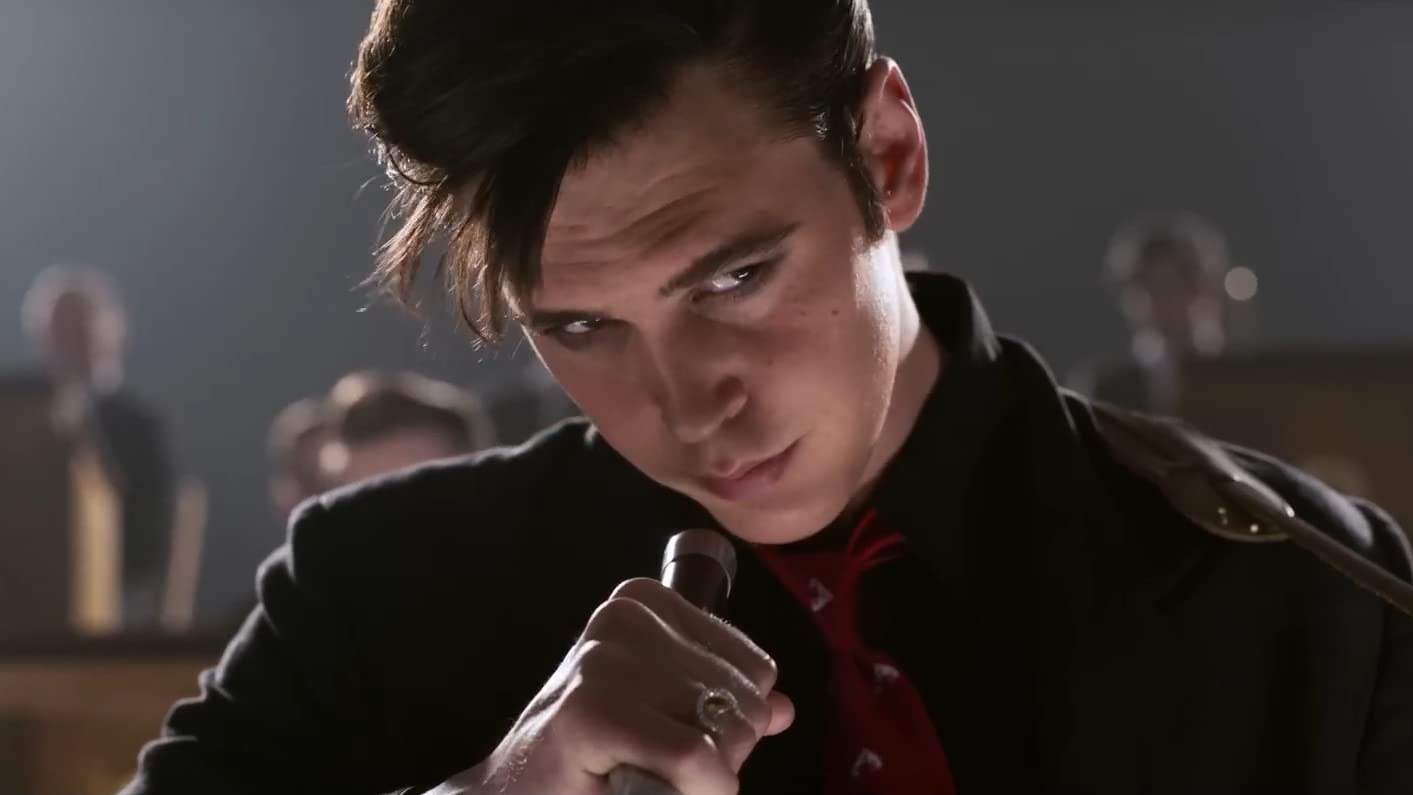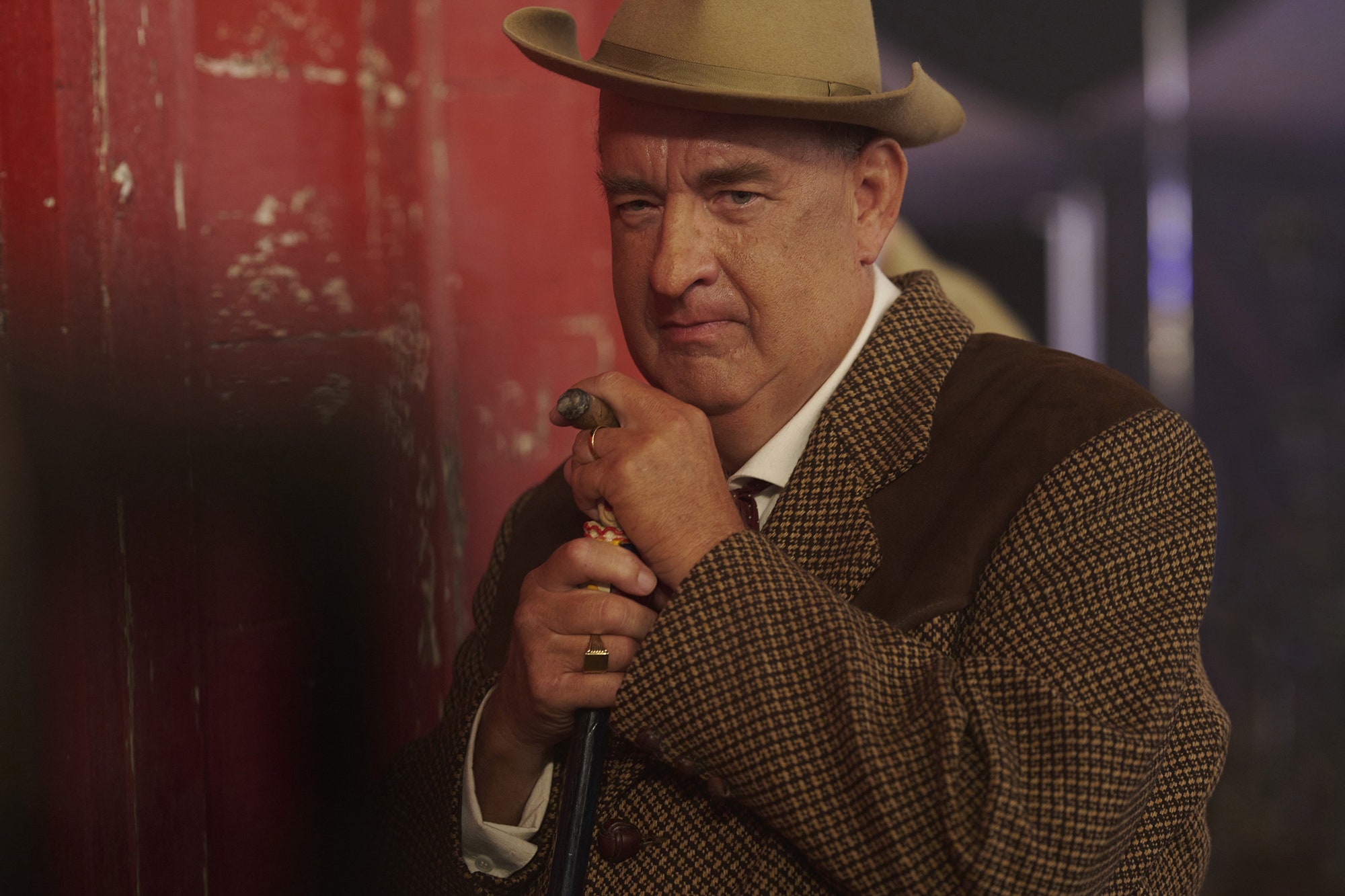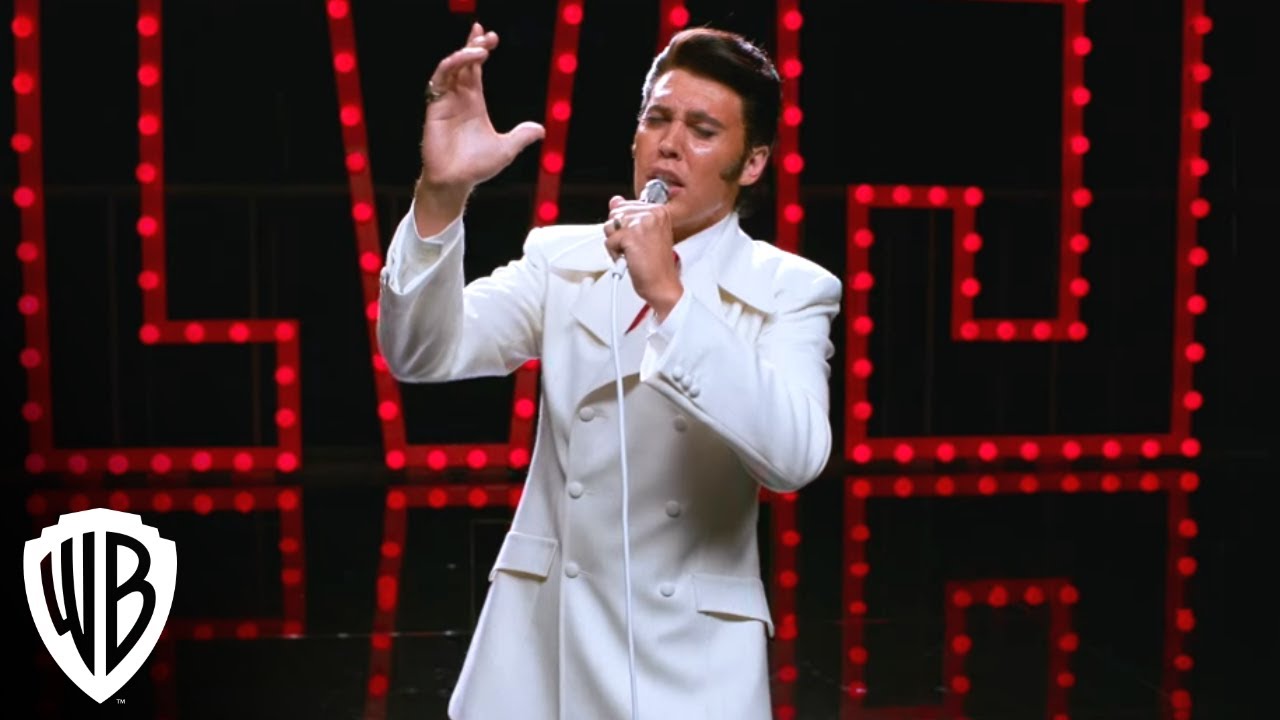Elvis (2022): Bring On the Oscar Buzz!

With the recent trend of biopics of musical icons, it was only a matter of time before one was done about Elvis Presley. So when Elvis was first being promoted, expectations were high, particularly with the unexpected casting of Austin Butler as Elvis and Tom Hanks as Colonel Parker. Along with the extravagant Baz Luhrman at the helm of this production, what could go wrong?
Rising musician Elvis Presley (played by Austin Butler) begins performing for concerts around the South with much success, catching the eye of music manager Colonel Tom Parker (played by Tom Hanks). As Presley’s stature grows, as does his controversy, with the government wanting his head on a stick for the music he plays along with his personal, habitual drug abuse. The growing scandals and Tom Parker’s tumorous form of management have turned Presley’s dream of stardom into the ultimate nightmare.

Portraying Elvis Presley is a tall order for any actor, but Austin Butler more than delivers. He was so good that many jokingly claimed that he was possessed by the spirit of Elvis himself and I can agree with that statement. He brought to the surface many of Presley’s mannerisms, from as his signature wiggle down to his voice. And his voice compared to old clips that are edited throughout the film is honestly hard to differentiate which is the true voice! Butler also brought all the stage presence Elvis was known for as well as his vulnerabilities when dealing with stardom, Colonel Parker, and family. Butler has also been receiving a lot of Oscar buzz for his portrayal of Elvis and rightfully so, but it also seems he’s gonna have some steep competition this year with all the buzz Brendan Fraser is getting from The Whale. Surprisingly, Tom Hanks as Colonel Tom Parker was underwhelming. It might have been because I see him as some of his more famous foles playing nice guys, which makes him feel miscast as an antagonist. Although I am unsure who else could’ve played Parker, I felt the material wasn’t for Hanks, even though he tries his best with what he was given.

Another thing I didn’t understand was some storytelling choices. The story mostly unfolds from Colonel Parker’s narration before his death. Was this supposed to make us sympathize with Parker or see he wasn’t a bad guy or something? It doesn’t make sense to me personally, but if someone wants to give me an explanation for it, feel free to reach out. I feel it would’ve been better to get the Elvis story from the point of view of one of the Presley family. Speaking of the story, it is by-the-numbers for any biopic story, although I am not complaining about that. The movie is narratively sound, however it does take a back seat to Luhrman’s bombastic and fantastical visual style. It does make way for some well-edited sequences and phenomenal production design to equate the visuals only Luhrman can create.

Even though the story is relatively clichéd, its ending was surprisingly beautiful and melancholic. Biopics like Bohemian Rhapsody and Rocketman have more happy and triumphant endings compared to Elvis. As the film ends with Elvis’s final performance, you can feel the joy from his voice but you can also feel the sadness knowing it’s the end. It was both depressing and extraordinary, and I have a feeling only director Baz Luhrman could have pulled that off.
Elvis is a visually stunning biopic that is only elevated to legendary heights by Austin Butler’s transformative performance. I have my issues with Luhrman’s direction, Hanks’ performance and some narrative choices but it isn’t enough to deter from how well-made the film is. Much of Elvis should be up for Oscar contention, particularly with production design, visuals, editing, possibly Best Picture and of course, Butler’s performance. Does Elvis have its flaws? Yes, but you will nonetheless feel fulfilled by the end of the experience.







